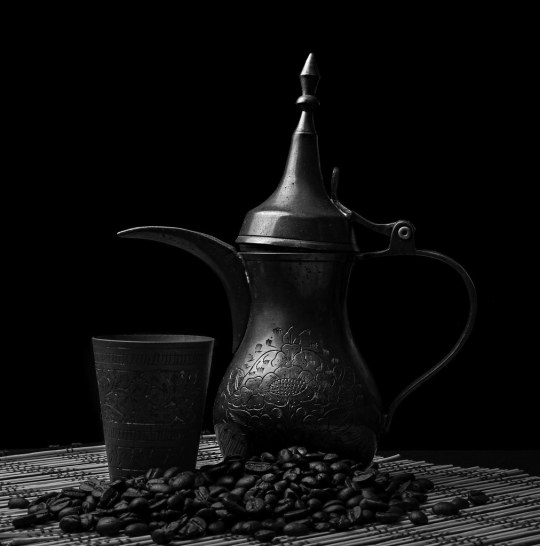#dallah
Text

instagram
instagram
in love with Xerjoff...
The Deshret Crown of Lower Egypt is what I first thought of when I saw the bottles for the first time. (с)
Or the Catholic mitre (infula for more) - when I saw Sospiro bottles.
МИТРА - головной убор релииозного сановника - как у римско-католического епископа: шапка, в верхней части оканчивающаяся двумя гребнями, похожая на голову рыбы с открытым ртом - os tincae, что ассоциировалось с Дагоном, вавилонским божеством (слово dag означает 🐟). Любопытно, что os uteri так называли в женской человеческой форме, и рыба связана с богиней Афродитой, которая вышла из моря. Любопытно также то, что древнехалдейские легенды говорят о религиозном учителе, вышедшем к ним из моря, которого звали Оанном и Аннедотом, - полу-рыбе, полу-человеке.
- Sourse
#Renaissance#Allende#Starlight#Golden Dallah#Oesel#Shingl#Esquel#Cruz del Sur II#Torino 21#Lua#work in progress#X
0 notes
Text
Chad Republic’s Stability Is In Nigeria’s Interest – President Buhari
Chad Republic’s Stability Is In Nigeria’s Interest – President Buhari
President Muhammadu Bihari says the stability of the Chad Republic and indeed, all neighbours of Nigeria is in the interest of the nation.
The President spoke on Friday at State House, Abuja, while receiving a Special Envoy from the Transitional President of Chad, General Mahamat Idris Derby.
Chad is to hold a Sovereign National Dialogue on August 20, 2022, and according to the Special Envoy,…
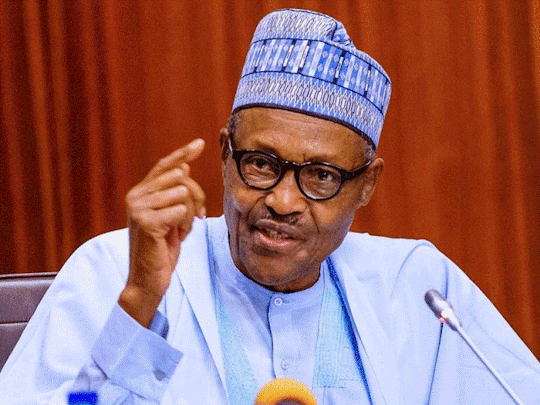
View On WordPress
0 notes
Text
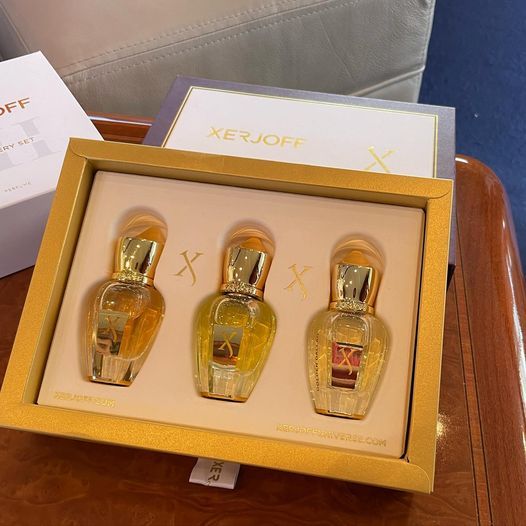
DISCOVERY SET III - XERJOFF 15 ML
NAXOS - ALEXANDRIA II - GOLDEN DALLAH
📷
“Three travellers throughout history.”
Discover uncompromising rare elixirs for mystery, exoticism and sensuality that break cultural barriers in this unique journey with Xerjoff.
#rosinaperfumery #xerjoff
2 notes
·
View notes
Text
Two comments that always stick with me are one where someone said they were happy to see a dallah (Arabic coffee pot) in one of my artworks, and the other was someone who told me that they had kuku sabzi for dinner and it reminded them of a scene in my fic. They were so sweet❤️
2 notes
·
View notes
Note
We gotta get you on the price is right.
you do not want that i would see a car and be like ahhhhh fifty dallahs
12 notes
·
View notes
Photo
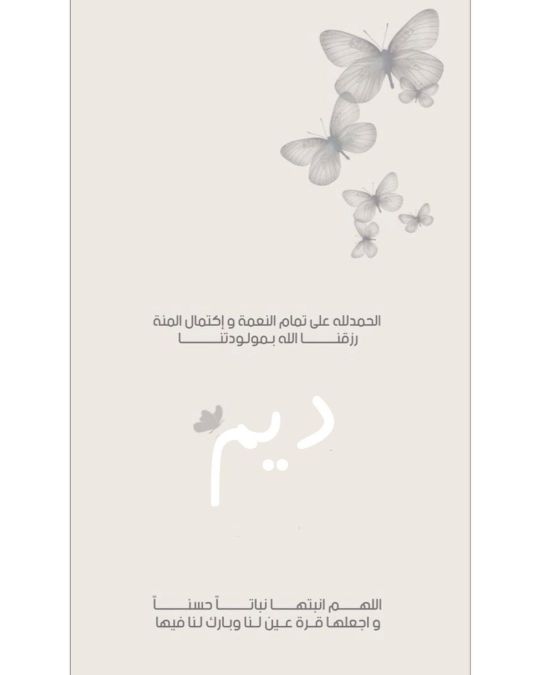
• 19/02/2023. ♓️💕. (at مستشفيات دله - Dallah Hospitals) https://www.instagram.com/p/Co6PZB5DubnfsFwzrvUcu7vy2hEZvG3FjefQC80/?igshid=NGJjMDIxMWI=
4 notes
·
View notes
Text
Getting a Saudi driving license is a necessary step for residents and expatriates alike. Whether you're a newcomer or a long-term resident, understanding the process is essential for a smooth driving experience in the Kingdom. In this step-by-step guide, we will walk you through the complexities of developing your Saudi driving license.
1. Eligibility Requirements:
Before launching on the journey to get your Saudi driving license, it's essential to meet certain eligibility criteria. To qualify, you must be at least 18 years old, hold a valid residence permit, and pass a medical examination. Ensure that all necessary documents, such as your passport and residency permit, are up to date. Before diving into the process, it's crucial to meet specific eligibility criteria. To obtain a Saudi driving license, you must be at least 18 years old, possess a valid residence permit, and pass a complete medical examination. Ensuring that all your documents, such as your passport and residency permit, are up to date is urgent for a seamless application process. Saudi Iqama 2024
2. Register in a Driving School:
Choosing a certified driving school (Dallah Driving School) is the first practical step toward getting your Saudi driving license. These schools offer structured training programs covering both academic and practical elements of driving. Register in a school that aligns with your importance and availability, as compatible attendance is essential for successful completion. To start your journey, register in a certified driving school in Saudi Arabia (Dallah Driving School).
These schools (Dallah Driving School) offer complete training programs that cover both academic and practical aspects of driving. Attend the required classes and practice sessions to build the necessary skills. Consider factors such as school reputation, instructor qualifications, and available training schedules when selecting a driving school. Ensure that the school is accredited by the Saudi Traffic Department to guarantee the validity of your training.
0 notes
Text
Brewing Harmony: The Cultural Significance of Coffee in Various Regions
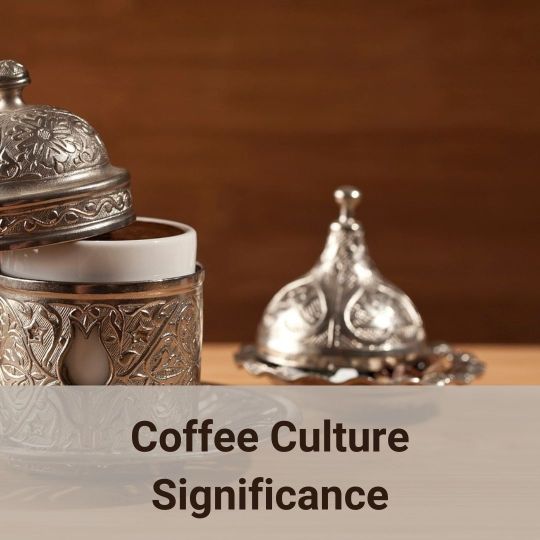
What is The Cultural Significance of Coffee?
Coffee has been cultivated and consumed in various regions of the world for centuries and has become an integral part of many cultures. The modernization of coffee and its unique forms across cultures are markers of tradition and modern changes across continents.Coffee culture appears in the way in which people consume coffee, the way they make it, and where coffee is served and shared.Each of these factors combined reflects the lives of the people in these countries and the importance of coffee across the world.Countries have cultivated coffee beans into various vehicles to satisfy needs unique to each country.Whether it be for energy, socialization, or tradition, the cultivation of coffee has served as a motivating force in the world.Coffee has a rich cultural history, and its significance varies from region to region.In the Middle East, coffeehouses were once centers of social and intellectual activity.In Europe, coffeehouses played an important role in the spread of Enlightenment ideas.In Latin America, coffee production helped to shape the economies of many countries.In North America, coffeehouses were popular gathering places for merchants and politicians.Today, coffee is a global phenomenon, and its cultural significance continues to evolve.
Table of Contents
The Cultural Significance of Coffee in the Middle East
Coffee is believed to have originated in the Middle East, and it has a long and rich history in this region.Coffeehouses were first established in the Middle East in the 15th century, and they quickly became popular centers of social and intellectual activity.Coffee is still seen as a symbol of hospitality and friendship in the Middle East, and it is often served to guests as a sign of welcome.In the Middle East, coffee is traditionally brewed in a small pot called a dallah. The coffee is then served in small cups called finjans. Coffee is often served with dates or other sweets.Coffee is an important part of many social and cultural events in the Middle East. It is served at weddings, funerals, and other gatherings. It is also often served during business meetings and other formal occasions.In recent years, there has been a growing trend of opening up modern coffee shops in the region.These coffee shops offer a variety of coffee drinks, as well as other food and beverages.Coffee remains an important part of the region's culture and traditions.Here are some specific examples of the cultural significance of coffee in different Middle Eastern countries:
Saudi Arabia
In Saudi Arabian culture, coffee is a traditional companion at meetings, weddings, and a wide variety of social events.Serving Arabic coffee is an important aspect of hospitality in Arab societies and is considered a ceremonial act of generosity.Coffee-making begins with the selection of beans, which are lightly roasted in a shallow pan over a fire, then placed into a copper mortar, and pounded with a copper pestle.The coffee grounds are placed into a large copper coffee pot; water is added and the pot is placed on the fire.Once brewed, it is poured into a smaller coffee pot from which it is poured into small cups.The most important or oldest guest is served first, filling a quarter of the cup, which can then be refilled.Common practice is to drink at least one cup but not exceed three.Arabic coffee is made and enjoyed by men and women from all segments of society, particularly in the home.The sheiks and heads of tribes who serve Arabic coffee in their meeting spaces, elderly Bedouin men and women, and owners of coffee trading shops are considered the main bearers.Knowledge and traditions are passed on within the family through observation and practice.Young family members also accompany their elders to the market to learn how to select the best coffee beans.Coffee has played an integral role in Saudi Arabian heritage.
Turkey
Coffee has been an integral part of Turkish culture for centuries, with a rich history and traditional methods of preparation.Turkish coffee combines special preparation and brewing techniques with a rich communal traditional culture.The freshly roasted beans are ground to a fine powder; then the ground coffee, cold water, and sugar are added to a coffee pot and brewed slowly on a stove to produce the desired foam.The beverage is served in small cups, accompanied by a glass of water, and is mainly drunk in coffee houses where people meet to converse, share news, and read books.The tradition itself is a symbol of hospitality, friendship, refinement, and entertainment that permeates all walks of life.In 2013, Turkish coffee culture and tradition were inscribed on the Representative List of the Intangible Cultural Heritage of Humanity by UNESCO.
Yemen
Coffee has been an integral part of Yemeni culture for centuries, with a rich history and traditional methods of preparation.Yemen is believed to be the birthplace of coffee, where it was first cultivated and traded.The port of Mocha, located in present-day Yemen, played a significant role in the spread of coffee beyond the Arabian Peninsula.Coffee rapidly moved into the secular sphere and spread along trade and pilgrimage routes across the Arabian Peninsula to Egypt and the Levant, reaching Istanbul in the early 1500s.Coffeehouses emerged as places where people of different backgrounds could socialize on an equal footing.Although coffee encountered disapproval from religious and political authorities with frequent attempts to ban it, the passion for it prevailed and coffee became an essential part of daily life, consumed in public coffeehouses and at home.
Egypt
Egypt has a rich history of coffee consumption, with coffeehouses being an integral part of the country's social and cultural fabric.Coffee is a symbol of hospitality in Egypt, and it is customary to offer guests a cup of coffee upon their arrival.The traditional method of preparing coffee in Egypt involves roasting the beans with cardamom and then grinding them into a fine powder.The coffee is then brewed in a special pot called a cezve, which is heated over a stove.Egyptian coffee is known for its strong flavor and is often served with dates or other sweets. Coffeehouses in Egypt are popular gathering places for people to socialize, play games, and discuss politics.In conclusion, coffee has played an important role in Egyptian culture for centuries.
Iran
In Iran, coffee occupies a unique cultural niche, blending history, hospitality, and tradition.While tea remains the dominant beverage, coffee, known as "qahve," holds a special place in Iranian culture.It's often served to guests as a symbol of warmth and welcome.Preparing coffee, usually flavored with cardamom, exemplifies the country's blend of Middle Eastern and Persian influences.Coffeehouses, or "qahveh khaneh," have been centers of socialization and intellectual exchange for centuries, fostering conversation and camaraderie.In Iran, coffee represents more than just a drink; it's a testament to the enduring importance of connection, conversation, and the rich tapestry of Persian heritage.Simply put coffee is more than just a beverage in the Middle East; it's a time-honored ritual deeply embedded in the cultural fabric.The aromatic scent of freshly brewed Arabic coffee wafts through homes and gatherings, symbolizing warmth and hospitality.The Middle East's coffee culture revolves around the traditional preparation of Arabic coffee, often served with dates, signifying welcome and respect.The coffee house, or "qahveh khaneh", is a hub for socializing, discussion, and storytelling. Coffee in this region embodies tradition, tradition, and a shared sense of community.
The Cultural Significance of Coffee in the Europe
Coffee was introduced to Europe in the 16th century and quickly became popular among the upper classes.Coffeehouses began to appear in major European cities, and they became popular gathering places for artists, writers, and intellectuals.Coffeehouses played an essential role in the spread of Enlightenment ideas, and they helped to foster a sense of civic engagement.In the 17th century, coffeehouses were banned in some European countries, such as France and Italy, because they were seen as threats to the established order.However, coffeehouses continued to be popular, and they eventually became legal again.Today, coffee is a popular drink in all of Europe. There are coffee shops on every corner. Coffee is also associated with relaxation and socializing, and it is a common way to start the day or to meet up with friends.In some European countries, coffee has a particularly strong cultural significance. For example, in Italy, coffee is an essential part of the daily routine.Italians typically drink espresso, a strong, concentrated coffee, in the morning and afternoon.Coffee is also a popular drink in Greece, where it is often served with a small piece of cake or pastry.The cultural significance of coffee in Europe is constantly evolving.In recent years, there has been a growing interest in specialty coffees, such as single-origin coffees and cold brew coffee.There is also a growing emphasis on sustainability, and many coffee shops are now sourcing their coffee from ethical and sustainable farms.Here are some specific examples of the cultural significance of coffee in different European countries:
Italy
In Italy, coffee is an art form and a way of life, which is deeply ingrained in the nation's culture. The Italian "espresso" is more than a quick caffeine fix; it's a daily ritual and a symbol of la dolce vita - the sweet life.The café, or "caffetteria," is a social hub where Italians gather for quick shots of coffee and animated conversations.Italian coffee culture places a premium on quality, with "baristas" perfecting the art of espresso-making.The "caffè sospeso" tradition, where patrons buy an extra coffee for someone in need, exemplifies Italy's values of generosity and community.In Italy, coffee is a sensory experience and a celebration of life's simple pleasures.
Greece
In Greece, coffee isn't just a beverage; it's a cultural institution, a ritual that embodies the essence of Greek hospitality and social life.The "Greek coffee", prepared in small pots called "briki", which is almost identical to a Turkish "Cezve", and served in demitasse cups, is more than just a caffeine boost.It's a symbol of connection, shared moments, and conversation.Greek coffeehouses, known as "kafeneia," have been gathering places for generations, where people engage in animated discussions, play backgammon, or simply savor the moment.Coffee in Greece transcends its taste; it's a cherished tradition that reflects the warmth, festivity, and strong sense of community that defines Greek culture.
France
Coffeehouses were banned in France in the 17th century, but they became legal again in the 18th century. Today, coffee is a popular drink in France, and there are coffee shops on every corner.In France, coffee is more than a daily caffeine fix; it's a cornerstone of culture and friendliness.The French café, with its iconic sidewalk tables and bustling atmosphere, represents a cherished institution where people gather to savor coffee and engage in leisurely conversation.From the aromatic espresso to the milky café au lait, coffee plays a pivotal role in French daily life. The "café gourmand", pairing coffee with a selection of miniature desserts, exemplifies the French art of indulgence.Coffeehouses have historically been hubs for artistic exchange and intellectual discussions, making coffee an integral part of France's cultural heritage and a symbol of refined living.
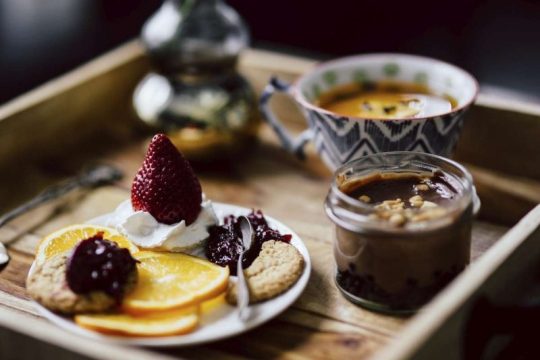
Have a Coffee With Some Desserts
Germany
In Germany, coffee isn't just a beverage; it's a cherished tradition steeped in history and social connection.Coffeehouses, known as "kaffeehäuser," have been pivotal in shaping the nation's cultural landscape for centuries.These establishments have been hubs for intellectual discourse, artistic gatherings, and social interaction, much like their European counterparts.German coffee culture has given rise to iconic coffee concoctions such as "kaffee verkehrt" (coffee with milk) and "eiskaffee" (iced coffee).Moreover, the tradition of "kaffee und kuchen" (coffee and cake) on Sunday afternoons is a cherished family ritual.Germans also enjoy coffee cocktails, such as the Affogato, which is made with espresso and vanilla ice cream.In Germany, coffee embodies both the warmth of hospitality and the vibrant fabric of culture and history.
United Kingdom
In the United Kingdom, coffee has undergone a remarkable transformation from a beverage of foreign allure to an integral part of daily life.While tea traditionally held sway, the emergence of coffeehouses in the 17th century fueled intellectual discourse and social interaction.Today, coffee culture thrives with a plethora of independent cafes and international chains.The "flat white" and "cappuccino" are spoken as fluently as any foreign language.Coffeehouses serve as hubs for work, study, and socialization, nurturing a sense of community.Coffee in the UK represents a dynamic fusion of global influences and timeless British traditions, epitomizing the nation's openness to cultural exchange.In Europe, coffee is more than just a morning pick-me-up; it's a cultural institution. From the elegant cafes of Vienna to the bustling espresso bars of Italy, coffee plays a central role in European social life.Coffeehouses have historically been centers of intellectual exchange, where artists, writers, and thinkers gathered to share ideas. The European café is a place where friendships are forged, business deals struck, and conversations flow freely.Each country has its unique coffee traditions, from the strong Turkish coffee in the Balkans to the creamy cortado in Spain. In Europe, coffee is a cherished tradition, an art form, and a symbol of sophistication and friendliness.
The Cultural Significance of Coffee in Latin America
Coffee is a major crop in Latin America, and it has played an important role in the region's economy and culture for centuries. Coffee is grown in many Latin American countries, including Brazil, Colombia, and Guatemala.In Latin America, it is a common way to start the day or to meet up with friends over coffee. Coffee is also seen as a symbol of hospitality and friendship. In many Latin American countries, it is customary to offer guests a cup of coffee.Coffee is also an important economic crop in Latin America. It is a major source of income for many farmers and their families. Coffee production has helped to lift millions of people out of poverty in Latin America.The cultural significance of coffee in Latin America is constantly evolving. In recent years, there has been a growing trend of specialty coffee shops opening up in the region.Here are some specific examples of the cultural significance of coffee in different Latin American countries:
Brazil
In Brazil, coffee is not just a beverage; it's a cultural phenomenon that has shaped the nation's identity and economy. As the world's largest coffee producer, Brazil's cultural connection to coffee runs deep.The country's iconic "cafezinho", a small, strong coffee served throughout the day, symbolizes Brazilian hospitality and socialization.Coffee farming has played a pivotal role in Brazil's history, shaping rural communities and regional identities.The cafe culture, from the lively streets of São Paulo to the tranquil countryside, embodies Brazil's vibrant spirit.Coffee represents tradition, family, and a shared love for the rich flavors that unite Brazilians and serve as a warm welcome to visitors.
Colombia
In Colombia, coffee is more than just a beverage; it's a national treasure and a cornerstone of the country's cultural identity.Known for producing some of the world's finest Arabica beans, Colombia's coffee industry has deeply shaped its history and culture.The
Read the full article
0 notes
Note
im just a passerby, but as an arab, seeing the actual coffee poury thingy in one of your haikaveh fanarts made me really really happy, keep up the good work ♥️♥️
Hi!!! This means so so much to me, oh my gosh! Drawing the dallah was one of my favorite things about the process of that art, so this really made my day🥰❤️
3 notes
·
View notes
Text
My husband and I just had a conversation about 30 mins ago before bedtime about what we would do with our money if we were rich and had all the time in the world.
We didn't even specify how much money we were making or how much there was there for us to use.
I said something about topping up my ezlink card @ $500 and buying 2 metres shawls to replace my current ones. Buying 7 pairs of hand socks of the same colour. Purchasing maybe another 3 pairs of socks of the same colour.
Sponsoring a bunch of students from institutions of my choice. Remaining anonymous and never wanting to know the very people who'd benefit from it-- like, I would never want to meet the students or their parents. Maybe I might want to know their names but I don't ever want to meet them in person because I don't want to feel even an ounce of arrogance. I'd probably ask them to keep us in their prayers and that would be all for me. I don't want to get to know them at all for anonymous sake.
Maybe secretly transfer $50k into my grandmother's account for the fun of it and giving my retired father $2k or 3k a month with $500 allowance money. Maybe even give him $500k, a fully paid mini cooper for him to drive around. A new belt. Paid subscriptions of YouTube, newspapers to be delivered to his home, Spotify, Netflix, Google- you name it.
Getting that old stove replaced. Maybe fix the old sink faucet that's been faulty for God knows how many years. Maybe even a new microwave and a new fridge. Oh, maybe a motorcycle just for fun.
Maybe I'd like to buy all the necessary accessories for Nintendo Switch and games that I've been wanting to purchase on discount. I might want to get myself 2x GameBoy and buy the original Pokémon Red, Blue and Yellow so that I can trade.
My husband says he wants to fly to Madinah and stay there for a while. I respect that. I'd join him and probably stay there for a month or 3 months. Maybe rent a space or stay at Dallah Taiba.
I told him I'd still want to take taxis and wouldn't want to buy a car because I've got no license (yet) hahaha. I'd buy maybe a reasonably practical fancy car for my spouse. Maybe a Tesla? Haha. I'm not so good with brands.
Hmm what else would I want to spend on? Maybe getting the desktop motherboard fixed? I could buy a PS5 but I know I won't play it. It would make my spouse happy but I know I wouldn't have the time to play it. Maybe I shouldn't get it? Hmm.
I'd make anonymous donations everywhere insyaallah. Travelling to countries to meet children and families affected by man made disasters (like war, genocide, apartheid, ethnic cleansing) and natural disasters.
Maybe I might make daily/monthly GIRO donations to mosques both locally and internationally. I won't get an iPad tho hahaha. I might want to get myself a sleek laptop but..... I'm happier with a desktop.
Perhaps a new bed frame that we need haha. I can't think of anything else to spend money on from my end but I would like to settle things that need to be settled first.
It's funny talking about this because, the imaginary situation is that I'm filthy rich but still taking public transport? Still wanting to wear my existing clothes and sleep on the same mattress that's been passed down to us. Maybe I do not have the desire to spend on that? Idk.
Or because it is imaginary & we do not physically see the money.
Good talk!
0 notes
Text
Dillon Max & Songstress MJ - Rama Ho Rama Re
Dillon Max & Songstress MJ - Rama Ho Rama Re #bhakti #bhajan #devotional #chutneymusicdotcom
Rama Ho Rama Re – DillonMax & Songstress MJ (Bhajan Bhakti 2023)
Title: Ram Siya Ram
Artistes: DJ ALX, Ruth Sheik, Timothy Rampersad and Rajesh Dallah
Vocal Recording: Autorama Studio
Vocal Editing and Music: DJ ALX
Mixed and Mastered: DJ ALX
Graphics and Video: Ganesh
Lyrics
Rama O Rama Re Bhul Mat Jaana, Teri Ayodhya Chhoda Ke
Rama O Rama Re Bhul Mat Jaana, Teri Ayodhya Chhoda Ke
Rama O Rama Re…
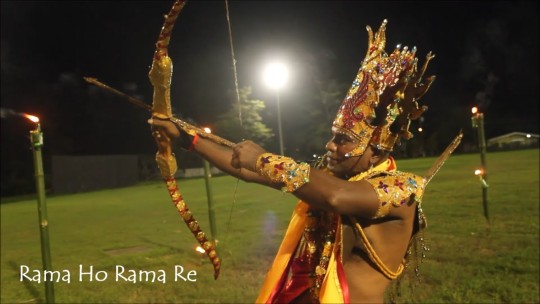
View On WordPress
0 notes
Text
Dillon Max & Songstress MJ - Rama Ho Rama Re
Dillon Max & Songstress MJ - Rama Ho Rama Re #bhakti #bhajan #devotional #chutneymusicdotcom
Rama Ho Rama Re – DillonMax & Songstress MJ (Bhajan Bhakti 2023)
Title: Ram Siya Ram
Artistes: DJ ALX, Ruth Sheik, Timothy Rampersad and Rajesh Dallah
Vocal Recording: Autorama Studio
Vocal Editing and Music: DJ ALX
Mixed and Mastered: DJ ALX
Graphics and Video: Ganesh
Lyrics
Rama O Rama Re Bhul Mat Jaana, Teri Ayodhya Chhoda Ke
Rama O Rama Re Bhul Mat Jaana, Teri Ayodhya Chhoda Ke
Rama O Rama Re…
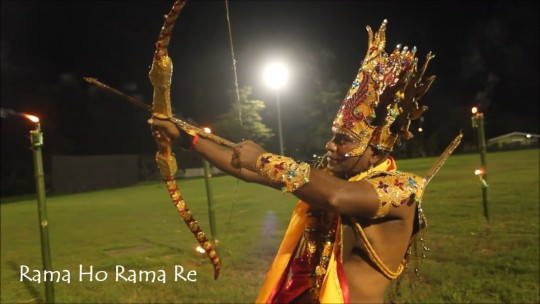
View On WordPress
0 notes
Text
I AM challenge all motherfucker muslims who are faithful to motherfucker mahammad and coward allah-dallah.....
if you motherfuckers are true believer of motherfucker mahammad then kill I AM...
you all motherfuckers are cowards...
I AM challenge coward allah-dallah to kill I AM
0 notes
Text
0 notes

